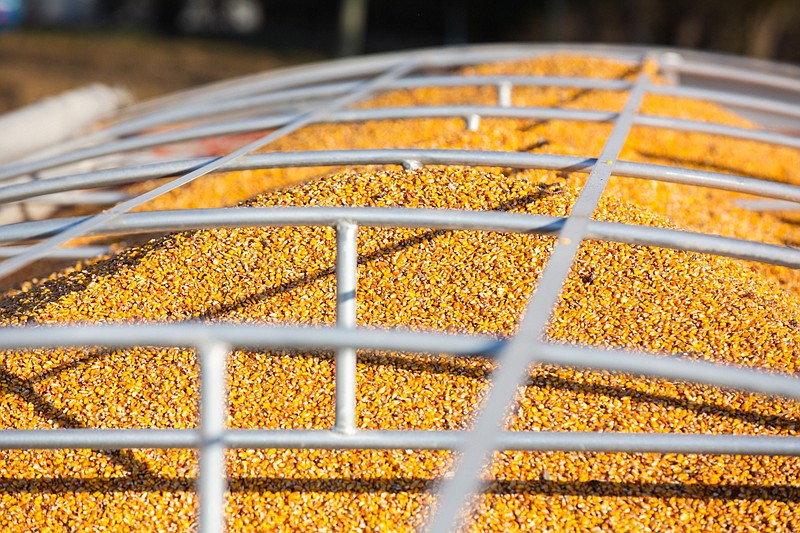A type of corn on its way to becoming obsolete is getting a lifeline: It could be a key to making the beef industry greener.
Swiss-based Syngenta Group's Enogen seeds is a brand of corn used for ethanol production that seemed to be on its way out as biofuels demand took a dive during the pandemic. But a recent study discovered that when fed to cattle, the corn improved efficiency in beef output by 5%.
For a thousand cattle, that means a reduction in carbon dioxide emissions equal to removing 35 cars from roads for a year, or sparing 50 football fields of feed crops in a year, the company said.
Enogen seeds might have soon phased out if it wasn't for the unintentional find, said Justin Wolfe, Syngenta's regional director of North America seeds. The sustainability of ethanol "over time, I think, is a question."
Syngenta sees farmers pivoting away from ethanol production. Biofuels and gasoline have seen demand setbacks as stay-at-home orders because of the covid-19 pandemic kept cars off roads. Longer term, improving battery technologies are boosting the outlook for electric vehicles.
Meanwhile, the beef industry has been battling criticism over its environmental footprint, especially because cattle emit methane, a potent greenhouse gas. Alternative meat companies like Beyond Meat Inc. and Impossible Foods Inc. have achieved tremendous growth in recent years, partly won by demonizing beef as unsustainable.
Last year, half of Enogen seeds produced corn for the biofuels sector and the other half went into feed. This year, closer to two-thirds will be used for feed, and that could easily reach 90% in several years, said Chris Cook, head of Enogen.
The research on Enogen is part of Chinese-owned Syngenta's $2 billion investment in reducing carbon emissions caused by agricultural operations, a plan announced last year. The company is conducting similar research in feeding the corn to dairy cows.
